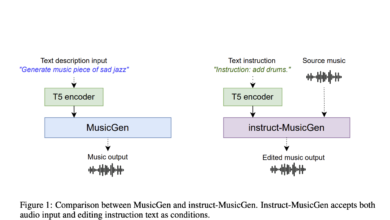Artificial intelligence, real career training

“In recent years, community colleges have experienced a notable surge in the integration and expansion of artificial intelligence (AI) programs within their academic offerings. Recognizing the increasing demand for AI-related skills in various industries, community colleges have been proactive in developing curriculum and courses that cater to the growing interest in this field.”
That’s how ChatGPT begins its response to a query asking it to summarize the growth of AI programs at community colleges.
The generative AI application continues: “These programs not only aim to equip students with foundational knowledge in AI but also emphasize practical applications and hands-on experiences. Additionally, partnerships with industry leaders and collaborations with technology companies have played a pivotal role in enhancing the quality of AI education at community colleges, ensuring that students are well-prepared for the evolving workforce and contributing to the democratization of AI education.” (Well summarized, but with due respect to ChatGPT, we will nonetheless stick with human intelligence for the remainder of this article.)
Colleges are all at different stages in the process, with some having developed a full associate degree program, some offering a certificate, and others still in the planning process. All who are heading down this path need to determine how to recruit students, train faculty, invest in facilities and equipment, and partner with industry to ensure they are training students for the right kind of jobs — those that exist both right now and in the quickly changing future.
From OGs to recent AI developers
Chandler-Gilbert Community College (CGCC), part of Maricopa Community Colleges in the Phoenix area, was approached five years ago by Intel about starting a program in artificial intelligence and machine learning, and became among the first in the U.S. to do so. The college now provides both an associate degree and certificate of completion, as does sister college Estrella Mountain Community College.
Intel is one of the largest employers in Arizona, with a sizable manufacturing facility in the state, which prompted the company’s interest, says Habib Matar, instructional services director and AI program director for the Maricopa system, who formerly worked at Intel and who developed the degree program.
“We had an idea of how big machine learning and AI was going to get at the time,” he says. “But I don’t think anybody could have forecast … the level it’s at now.”
With additional support from the Arizona Commerce Authority, CGCC and Estrella Mountain have developed programs focused on AI for business solutions and other applications, including natural language processing, computer programming in Python and machine learning. Students learn how to build machine learning models that can make predictions and decisions, boosting the capabilities of humans who use them.
In addition to Intel, companies like IBM, Wells Fargo, Deloitte and Amazon need AI skills for roles like business analyst, data engineer and software developer, according to Maricopa’s website.
Building up AI learning
Las Positas College (California) developed a certificate program starting in 2020, once Carlos Moreno, professor and coordinator of the computer studies program, came on board.
“My technical background is in artificial intelligence,” he says. “When I interviewed for the position, I told them one of my goals is to bring AI and machine learning to the community college level. Thankfully, my dean gave me an opportunity.”
Las Positas is part of the Bay Area Community College Consortium, one of eight in the state designed to share intelligence on the impacts of AI on pedagogy, college operations and workforce development (see sidebar).
The college’s Certificate of Achievement in Artificial Intelligence provides students the skills to develop AI solutions after analyzing problems and triaging which AI algorithms would work best, according to the Las Positas website. Career opportunities for students could include AI programmer, machine learning engineer, data scientist and business intelligence developer.
A national incubator
Mississippi Gulf Coast Community College (MGCCC) plans to offer a single course in AI this fall, which the college expects will blossom into a full program in the near future, says Jonathan Woodward, executive vice president of teaching and learning, and community campus, as well as the architect of the statewide Mississippi Artificial Intelligence Network.
“Artificial intelligence is going to impact everybody,” he says. “What I say to our students is, ‘You do not need to be worried about AI replacing you. You need to be worried about another person who knows AI replacing you.’”
For that reason, MGCCC plans to infuse AI throughout its general education program, says Woodward, who also has participated in the national Artificial Intelligence Incubator Network managed by the American Association of Community Colleges. This fall’s offering will be an update of an existing computer-related course that currently focuses on learning the Office suite, he says. “We’ll be shifting to expand that to be partly about artificial intelligence and cybersecurity.”
The more robust AI program will be built out of an existing data analytics program, initially as a concentration, Woodward says.
“It may ultimately consume the data analytics program,” he says.
MGCCC expects to move from the single course this fall, to a certificate within the analytics program and then ultimately an associate degree, he adds. The college also has been talking with industry partners about upskilling their incumbent workers.
MGCCC also plans to support non-IT faculty in using AI to build their courses — and in encouraging students to use it in appropriate ways, Woodward says.
“It would be silly for us to act as if students are not going to use ChatGPT,” he says. “Our stance is, we need to teach them how to use it ethically, morally and … appropriately in idea and content creation.”



